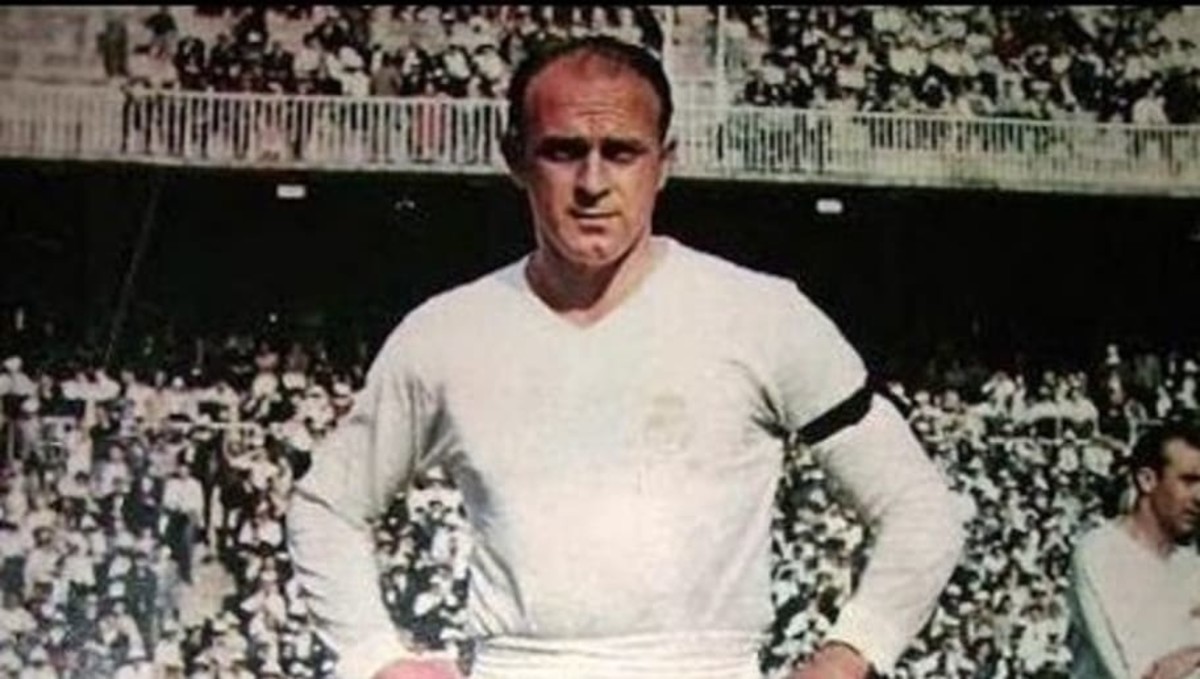Alfredo Di Stefano: Ode to the Man Who Surpassed All Records

In an age where Cristiano Ronaldo and Lionel Messi are breaking every record in football history, it's very easy to become desensitised to previous achievements and to look back on the past with pity.
It's not only individual players who are creating this blind spot for historic brilliance however. The birth of the Premier League in 1992 has led to all previous title victories and domestic successes being disregarded and belittled - just ask 18-time league winners Liverpool.
But in order to fully celebrate the smashing of each record by today's champions, we need to appreciate the men who laid the foundations, and allowed these records to be broken.
The 7th of July is a day of mourning and celebration not only in Madrid, but all over the world, as it commemorates the death of Alfredo Di Stefano, one of football's original superstars. The Real Madrid legend died in 2014, but his goals and ability will be remembered at the Bernabeu forever.
Di Stefano was a skillful player, good with the ball at his feet, and a clinical finisher in front of goal. He was so much more than that though. He would drop deep to collect the ball in space, spray passes from one side of the pitch to another, but he'd also track back, tackle and do the work not expected of him. He was an all-round superstar.
Again, it's easy to focus on the history he created during his time at Madrid, where he scored a record 216 league goals in 262 games, won five successive European cups, scoring in each final, not to mention a hat-trick in the 1960 victory over Eintracht Frankfurt. He won the Ballon d'Or twice, and is the only player to earn the 'Super Ballon d'Or', which remains in the Real Madrid museum to this day.
He went on to briefly manage Los Blancos during a difficult period, and managed to secure the Spanish Super Cup against rivals Barcelona.
His stardom didn't come without difficulties, however. The Argentine was also kidnapped, held hostage for two days in Caracas whilst on tour with Madrid in 1963. At the end of this ordeal, Di Stefano was released, and he handled the situation with grace and care during a particularly tricky political climate. He went on to play for Madrid the very next day, showing the strength and character of the great man.
He was clearly a very forgiving man, as he met with his kidnapper before a film premiere in 2005, based on this awful event.
He joined Madrid at the age of 27, but he began his career aged 17. Ten years of goals, titles and victories that are rarely mentioned in the story of the great striker. His numbers from a young age are staggering - 49 goals in 66 games at River Plate, 90 goals in 101 games at Millonarios, in Colombia.
You can get lost in numbers, statistics, lists of awards and accolades. You can open Youtube and watch black and white, grainy compilations of Di Stefano on muddy pitches with heavy leather balls, and not quite understand why he is revered in the way that only the greats are remembered.
A glance at the official Madrid website tells you all you need to know.
"The best footballer of all time."
The Santiago Bernabeu is a cauldron of noise, passion, rage, and worship. The Madrid faithful can rip you down off that pedestal at any moment, and accolades gone-by can be forgotten with a mis-hit cross. Even the mighty Cristiano Ronaldo and Zinedine Zidane suffered the wrath of the Madridistas.
Di Stefano remains the golden boy of Madrid, beloved and worshipped in a way that no other footballer may ever experience. Their training ground is named in his honour, and he was made honourary president of the club in 2000.
Records may be made and broken, but the memories created and the bond formed between player and supporter can never be surpassed.







